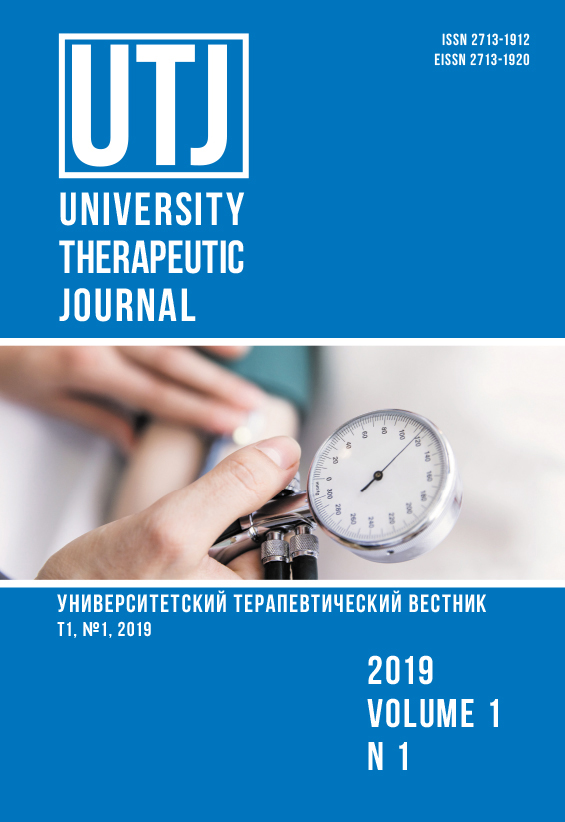THE RELATIONSHIP BETWEEN UNDERNUTRITION AND ANEMIAIN ULCERATIVE COLITIS PATIENTS: A CROSS-SECTIONAL STUDY RESULTS
Abstract
Background. The anemia and the undernutrition are frequent ulcerative colitis (UC) complications, but the impact of undernutrition to anemia isn’t assessed from point of view of practical approach. Our objective is to assess relationship between of the undernutrition and the anemia in UC patients. Methods. The cross sectional retrospective analysis included data from medical records of 80 UC patients. Demographic characteristics, disease behavior, gut involvement extension, immunosupressive therapy applying, laboratory parameters (hemoglobin and total serum protein levels) were collected. Body mass index (BMI) and fat mass were collected retrospectively from bioimpedance analysis data. Anemia was diagnosed retrospectively by WHO criteria: hemoglobin level less than 13 g/dl for male and less than 12 g/dl for female. Substantial fat mass loss was estimated by Tanita reference tables. A binary logistic regression was performed to study the relationship between nutrition status parameters and anemia occurrence adjusted for demographic and disease associated characteristics. Results. Prevalence of anemia in the sample was 40.0%. In adjusted binary logistic model total serum protein level below 64 g/l and substantial fat mass loss were associated with a high odds of anemia occurrence: OR 5.1 (95% CI 1.5; 17.8) and 8.5 (95% CI 1.1; 63.6) respectively. Adjusted model includes gender, age, disease activity, extent of gut involvement, quantity of relapses from disease beginning and treatment with immunosuppressive medications as confounders. Conclusion. We assume undernutrition is one of the causative agents of anemia in UC patients. Findings in the present study could have significant implications for physicians caring for UC patients with anemia and undernutrition.


